PROMOTING A SUSTAINABLE BATTERY VALUE CHAIN

Sustainability Review – June 2023
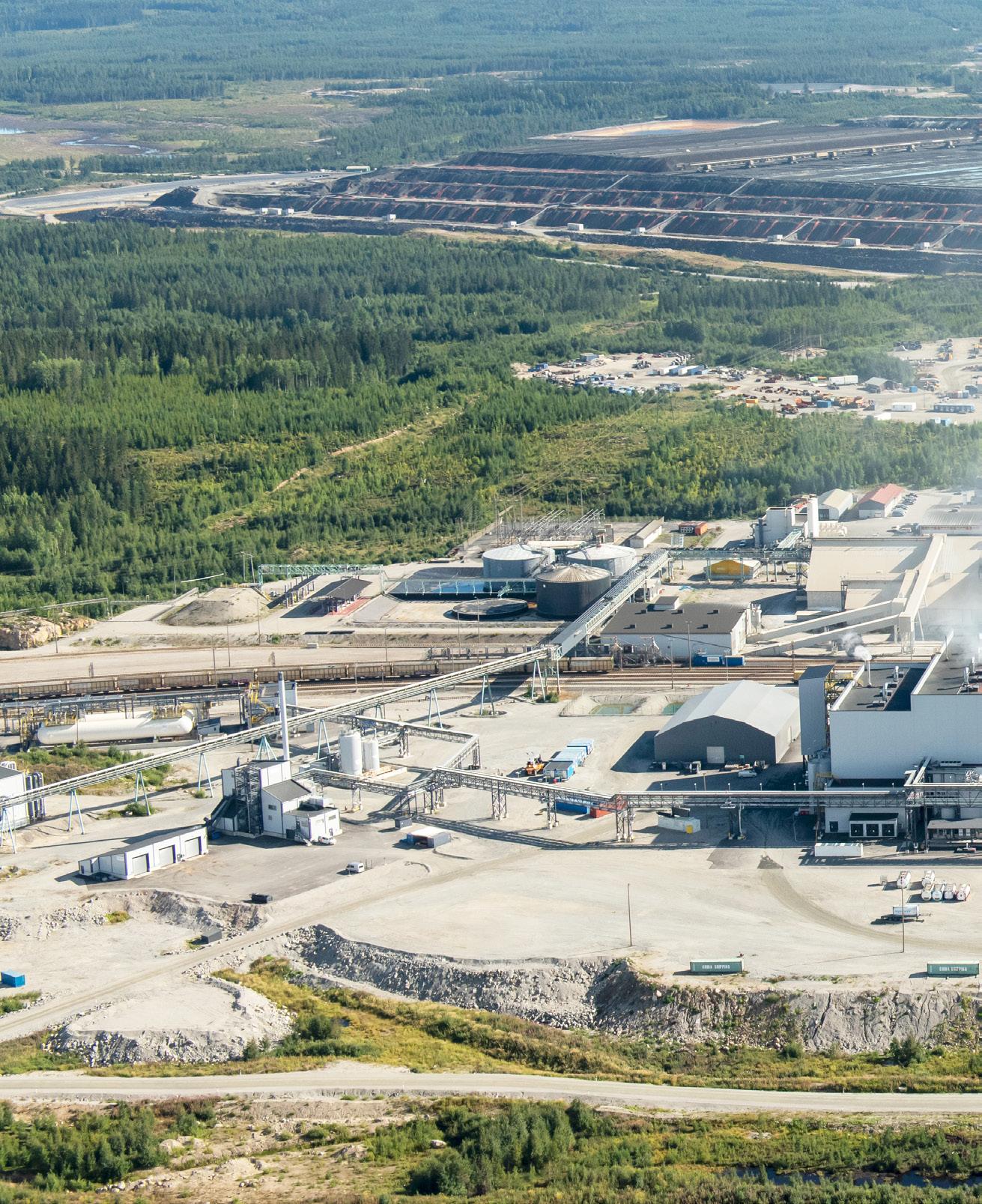
2 SUSTAINABILITY REVIEW 2023 Business model 4 A unique integrated production process 5 Chief Sustainability Officer’s review 6 CEO’s review 8 Low-carbon battery chemicals help Renault Group to build a sustainable battery value chain in Europe 10 Using participative leadership for better safety culture 12 Terrafame is ready as corporate responsibility obligations grow 14 Sustainability programme 16 Environmental responsibility 18 Social responsibility 20 Good governance 22 Terrafame in numbers 24 Contents SUSTAINABILITY REVIEW 2023
Terrafame Ltd.
Terrafame reduces the carbon footprint of transport by delivering responsibly produced battery chemicals to the global battery industry. One of the world’s largest production lines for chemicals used in electric vehicle batteries is located on Terrafame’s industrial site. The plant can produce nickel sulphate for around 1 million electric vehicles per year. The carbon footprint of the nickel sulphate produced by Terrafame is among the smallest in the industry. Terrafame’s integrated, unique, and energy-efficient production process from the mine to battery chemicals is located on a single industrial site. It provides customers with a transparent, traceable, and truly European battery chemical supply chain. Terrafame Ltd. was founded in 2015. Its net sales in 2022 were EUR 584,4 million. Around 1,500 people work on its industrial site, half of whom are employees of partner companies.
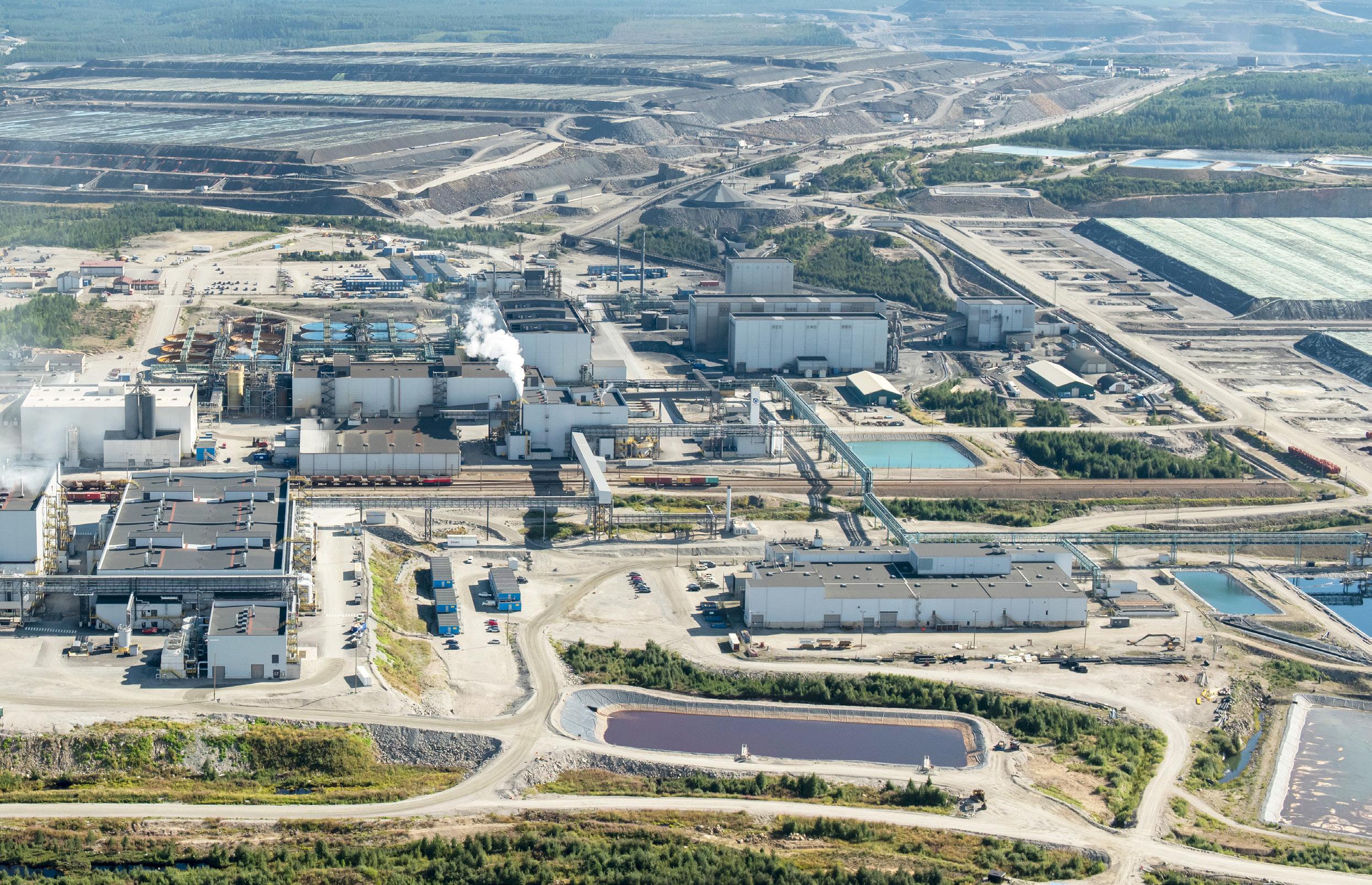
About the Sustainability Review
This sustainability review describes Terrafame’s progress in its sustainability programme. The review also describes actions taken in the first half of 2023 towards advancing the sustainability programme. This Sustainability Review complements the non-financial report published as part of the 2022 Board of Directors' Review. The 2022 Board of Directors' Review and Financial Statements, as well as the Reports on Corporate Governance Statement 2022, Remuneration Statement 2022, and the company's remuneration policy, all based on the Finnish Securities Market Association's Corporate Governance Code 2020, are available on the company's website at www.terrafame.com
3 SUSTAINABILITY REVIEW 2023
Business model
Enhancing low-carbon mobility with responsible battery chemicals
IMPACTS
Economic value-added – Committed personnel –Safe working environment – Solid customer experience
TRACEABLE SUPPLY CHAIN, LOW CARBON FOOTPRINT
INTEGRATED AND ENERGY EFFICIENT PRODUCTION
4 SUSTAINABILITY REVIEW 2023 Ni+Co Zn Zn Cu Cu Ni+Co Ni Co Cu Zn Ni Co Cu Zn Ni Co Ni+Co Zn Zn Cu Cu Ni+Co Cu Zn
RESOURCES
in Europe –
–
VALUES Safety – Commitment – Efficiency
Largest nickel ore reserves
Skilled personnel
Wide partner company network
Open pit Materials handling Bioleaching Metals extraction Battery chemicals plant
A unique integrated production process
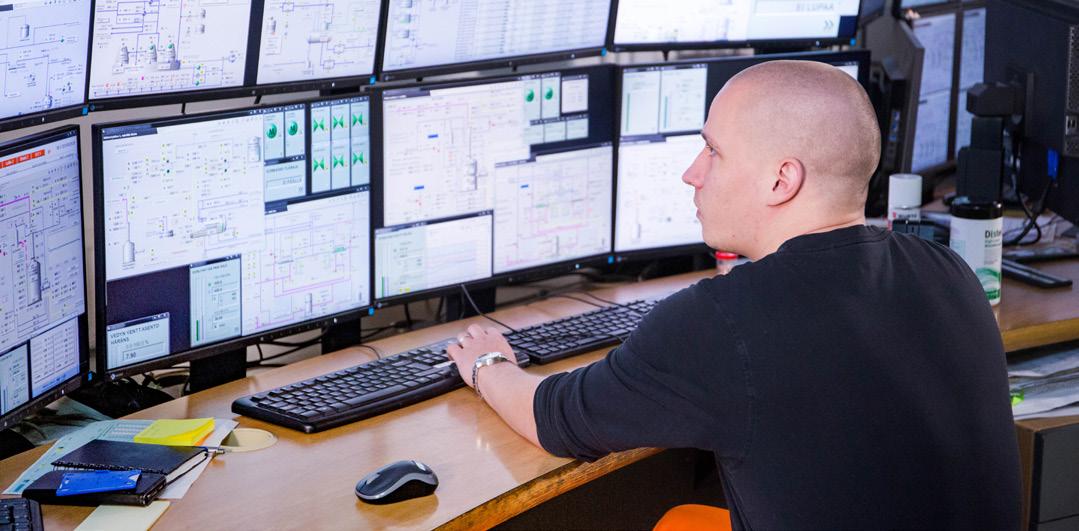
Terrafame’s integrated production process – which begins in its own mine and ends in the battery chemical production plant on a single industrial site – is a unique and energy-efficient production chain that provides customers with battery chemicals that have a significantly smaller carbon footprint compared to the industry average.

1
The production process starts at Terrafame’s own open pit, from which the ore is mined. The ore is then crushed, agglomerated, and transported and stacked to bioleaching heaps.

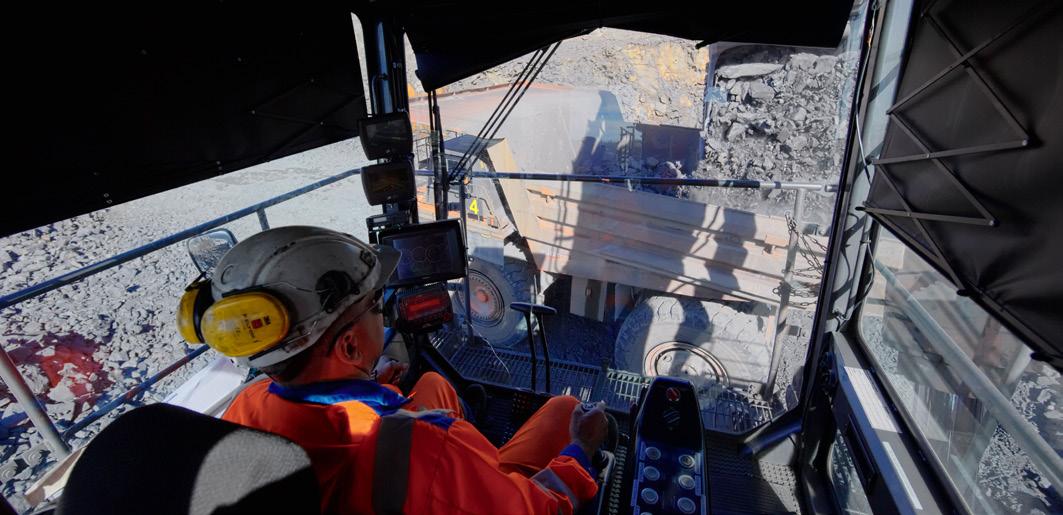
2
The bioleaching process utilizes microbes to extract metals from the ore. Air is blown into the heaps, and they are irrigated with an acidic production solution. This creates optimal conditions for the microbial activity within the heaps. The stacked ore is first leached in the primary heap for about 15 months. The ore is then reclaimed and conveyed onto a secondary heap for final leaching. Bioleaching is an energy efficient production method.
3
Metals are extracted from the recyclable production solution, which is precipitated in stages into nickel-cobalt, zinc and copper sulphides in a metals recovery plant. Zinc and copper sulfides are filtered and sold for refining.
4
The nickel-cobalt sulphide is fed into the battery chemicals plant which is located at the same industrial site. There the nickel-cobalt sulphide is further processed into nickel and cobalt sulphates i.e. battery chemicals.
5 SUSTAINABILITY REVIEW 2023
CHIEF SUSTAINABILITY OFFICER’S REVIEW
Towards the most sustainable battery chemicals production on the market
Sustainability is at the heart of Terrafame's strategy. The cornerstone of Terrafame's sustainability is our battery chemicals, which we produce with a carbon footprint that is proven to be lower than the industry average, and a short, transparent production chain, where all our operations from extraction to downstream processing take place on the same industrial site. This added value is also seen by electric vehicle manufacturers – our current customers – such as Stellantis and Renault, whose representative we interviewed for this review (p. 10). We are proud that our products support our customers in reaching their carbon neutrality and sustainability goals.
In addition to our indirect impact, we are systematically developing our own sustainability in line with the principles of continuous improvement. We are committed to carbon neutral production by 2039. Last year, we continued our roadmap work, where we defined concrete steps to reach this target in a cost-effective way. To support the roadmap, we carried out studies on issues such as locally produced renewable energy and green hydrogen production.
Terrafame's products enable cleaner transport and support the EU's climate targets
As part of the European battery value chain, Terrafame is contributing to the development of lower emission transport with low-emission and responsible products, thus supporting the EU's goal of reducing CO2 emissions by 55% by 2030. Meeting the EU's climate targets will require significant investment over the next 15 years. The allocation of green finance will be guided by the EU Taxonomy. Currently, the production of battery chemicals is not within the scope of the EU Taxonomy, unlike the production of cathode materials, which is the next step in the battery production chain after chemicals. We expect the classification system to be extended to cover battery chemical manufacturing as these chemicals are crucial for the environmental performance, and in particular the emission reduction characteristics, of EV batteries. We also believe that both our core production and our upcoming investments in carbon neutrality are well placed to meet the criteria set for green financing.
Sustainability reporting will develop strongly in the coming years. The EU Corporate Sustainability Reporting Directive (CSRD) will enter into force in 2024 and will introduce new reporting obligations for companies alongside financial reporting. The purpose of sustainability reporting is to gather information that will allow investment funds and other financial market participants to allocate green finance to eligible targets. The change will
6 SUSTAINABILITY REVIEW 2023
increase the importance of sustainability reporting, making it more consistent and, as a result of external verification, of higher quality and credibility. Terrafame has already started to prepare for the renewal of its sustainability reporting, described further on pages 14-15.
Terrafame is developing its sustainability programme through a materiality assessment based on the double materiality principle. This assessment will be carried out in 2023. The materiality assessment will help us identify the issues that are relevant to our operations and stakeholders and that need to be developed and reported on. We strongly believe that by developing our sustainability in the long term, we will create added value to our customers and stakeholders.
We strongly believe that by developing our sustainability in the long term, we will create added value to our customers and stakeholders.
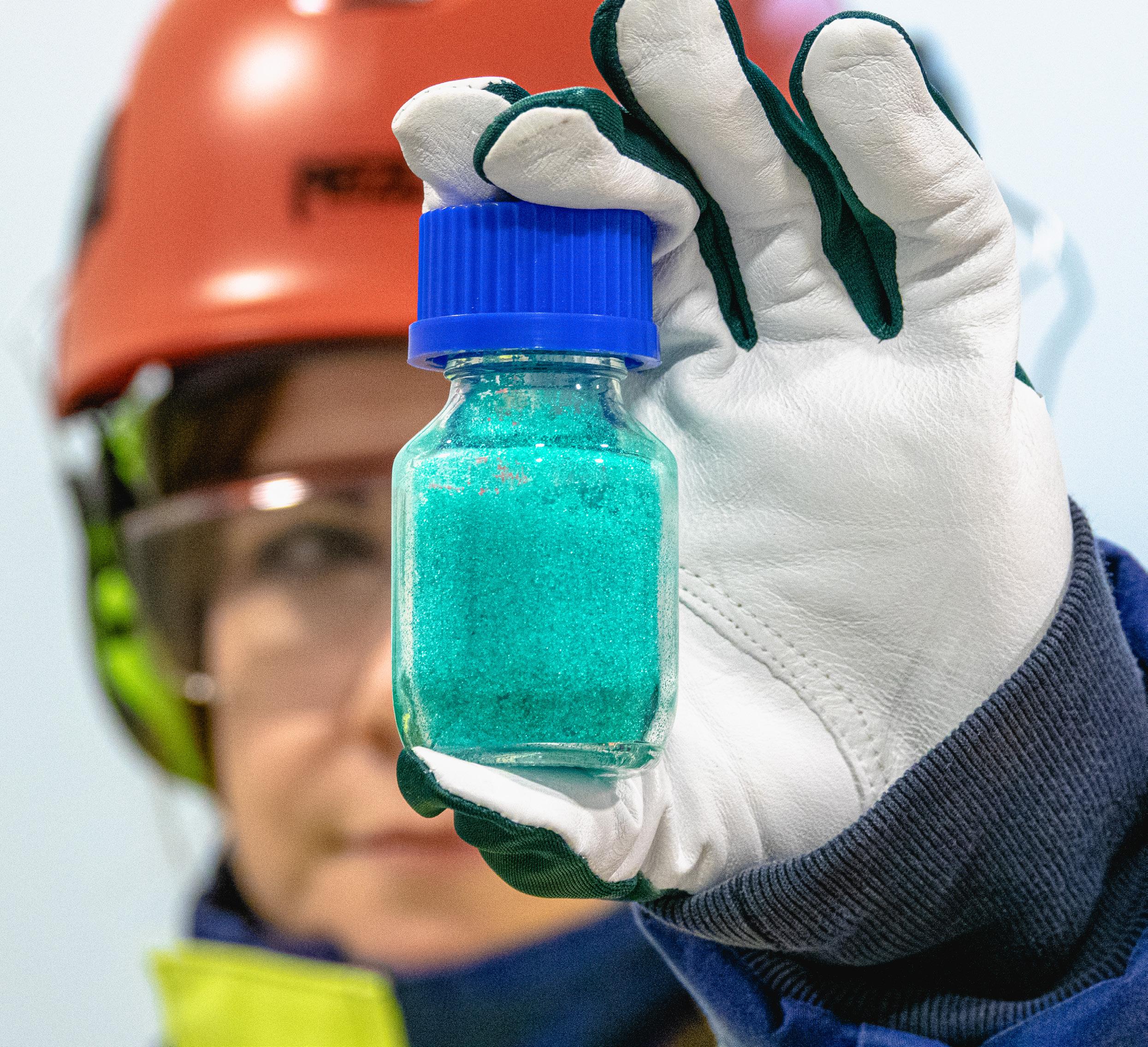 Veli-Matti Hilla Chief Sustainability Officer Terrafame Ltd.
Veli-Matti Hilla Chief Sustainability Officer Terrafame Ltd.

7 SUSTAINABILITY REVIEW 2023
CEO’S REVIEW
We promote the electrification of transport and a transparent battery value chain
The electrification of transport is a critical piece in mitigating climate change, and demand for electric vehicles continued to grow strongly in 2022 despite the current geopolitical situation. More than 10 million electric vehicles were sold, an increase of around 53% compared to the previous year.

Many leading car manufacturers have committed to phase out cars using fossil fuels. These car manufacturers are now also Terrafame's customers; in 2022 we signed binding long-term nickel sulphate supply agreements with the Renault Group and Stellantis, which are amongst the world's largest car manufacturers. In the future, Terrafame's nickel sulphate may be found in the batteries of electric car models for Renault, Alfa Romeo, Chrysler, Citroën, Dodge, Fiat, Jeep or Opel.
The low carbon footprint of the nickel sulphate produced by Terrafame, along with our transparent supply chain, are key factors for operators such as Renault and Stellantis. Stellantis, for example, is aiming for net zero emissions by 2038. The company aims to sell only electric vehicles in Europe by 2030. The Renault Group, on the other hand, is aiming for carbon neutrality in Europe by 2040 and is committed to reducing emissions in the production of a battery by 35% by 2030.
For leading carmakers, it is not enough to switch their models from internal combustion engines to electric models. Electric car production must be responsible and transparent throughout the value chain, because we, the car buyers, demand it. Terrafame's integrated production process starts at the mine and ends with battery chemical production in the same industrial site, enabling a fully transparent value chain.
Not only are we transparent and support our customers' efforts to combat climate change, we are also committed to long-term reduction of our own carbon emissions. Our goal is carbon neutral production by 2039 and we are currently developing a roadmap to achieve this. As part of our sustainability programme, we will continue to integrate the UN Global Compact and its core values of human rights, labour principles, the environment and anti-corruption into our operations.
At the latest with the war in Ukraine, Europe has also woken up to the importance of access to critical raw materials. The European Commission's Critical Raw Materials Regulation (CRM Act), adopted in March 2023, includes measures to ensure secure, diversified, affordable, and sustainable access to critical raw materials in the EU. In challenging times,
Through partnerships with Renault and Stellantis, Terrafame has claimed its place as a recognised partner in the responsible electric vehicle supply chain.
8 SUSTAINABILITY REVIEW 2023
there is strong demand for battery chemicals produced responsibly and transparently in Europe.
Through partnerships with Renault and Stellantis, Terrafame has claimed its place as a recognised partner in the responsible electric vehicle supply chain. I am proud that we are helping our customers to achieve their emission reduction targets while creating a sustainable and fully traceable battery value chain in Europe.
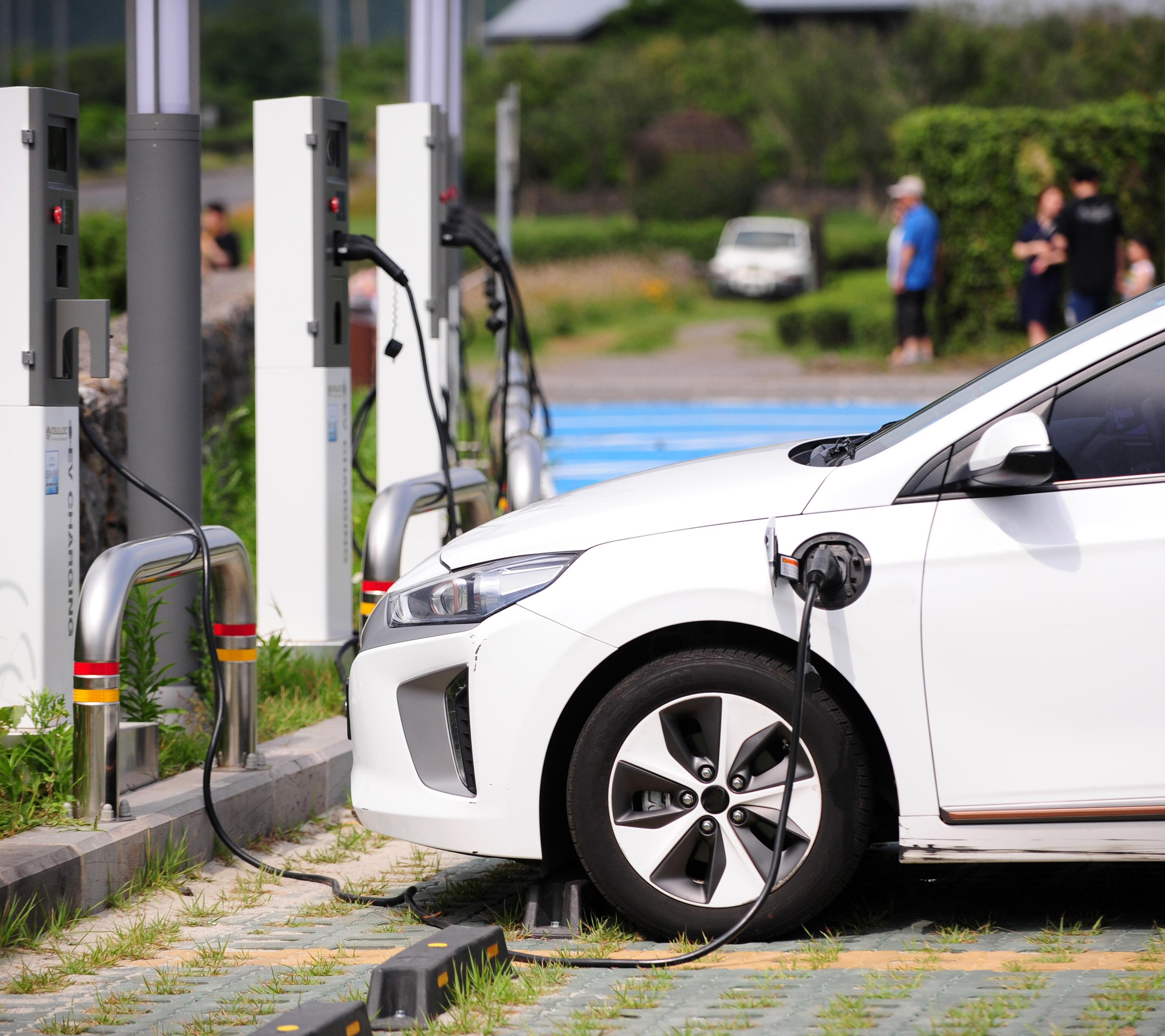 Joni Lukkaroinen CEO Terrafame Ltd.
Joni Lukkaroinen CEO Terrafame Ltd.
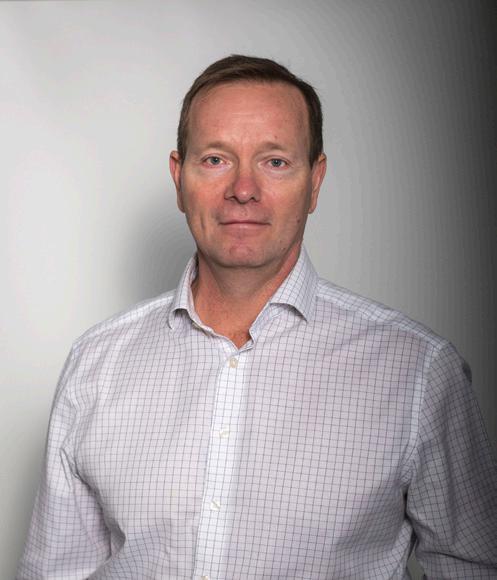
9 SUSTAINABILITY REVIEW 2023
Low-carbon battery chemicals help Renault Group to build a sustainable battery value chain in Europe
Mitigating climate change together with customers is a key part of Terrafame’s sustain ability promise. During the first operating years of its battery chemicals plant in Sotkamo, Terrafame has secured cooperation with leading automotive players. In 2022, Terrafame signed a multi-year agreement for the supply of low-carbon and traceable nickel sulphate for electric vehicle (EV) batteries with Renault Group.
Terrafame’s nickel sulphate for EV batteries has a significantly lower carbon footprint compared to the industry average1 . In this way Terrafame is supporting the automotive industry’s ambition to decarbonize the EV manufacturing value chain, while playing a crucial part in sustainably decarbonizing European mobility.
Terrafame is supporting the automotive industry’s ambition to decarbonize the EV manufacturing value chain, while playing a crucial part in sustainably decarbonizing European mobility.
Renault Group has committed to becoming carbon neutral in Europe by 2040. To reach its climate target, the car manufacturer has launched a comprehensive plan comprising nine major actions. One of these actions is to electrify 100% of the Renault brand's new passenger car models by 2025 and turn 100% electric by 2030. Related to this action, Renault Group plans to deploy more efficient, low-carbon, and reusable batteries.
"The partnership with Terrafame will strongly contribute to our ambition to reduce up to 35% of the carbon footprint in the production of a battery by 20302", tells Mr. Jérôme Gouet, E-Powertrain and Battery Global Purchasing Director at Renault Group.
A sustainable EV battery value chain requires transparency and social responsibility
As the electrification of transport accelerates, the sustainability efforts of the automotive industry extend to the overall sustainability of the battery value chain. For Renault Group, this means that not only do batteries need to be low carbon, but they also need to be sourced transparently, responsibly, and according to the company’s ethics and commitments to human rights and fundamental freedom.
Terrafame’s integrated production process – which begins in its own mine and ends with battery chemical production on a single industrial site – enables Renault Group to pursue its sustainability targets both on transparency and lowering carbon intensity.
"The commitment of our suppliers to our Code of Conducts and Policies, ESG performance, and transparency are the cornerstones of Renault Group’s Sustainable
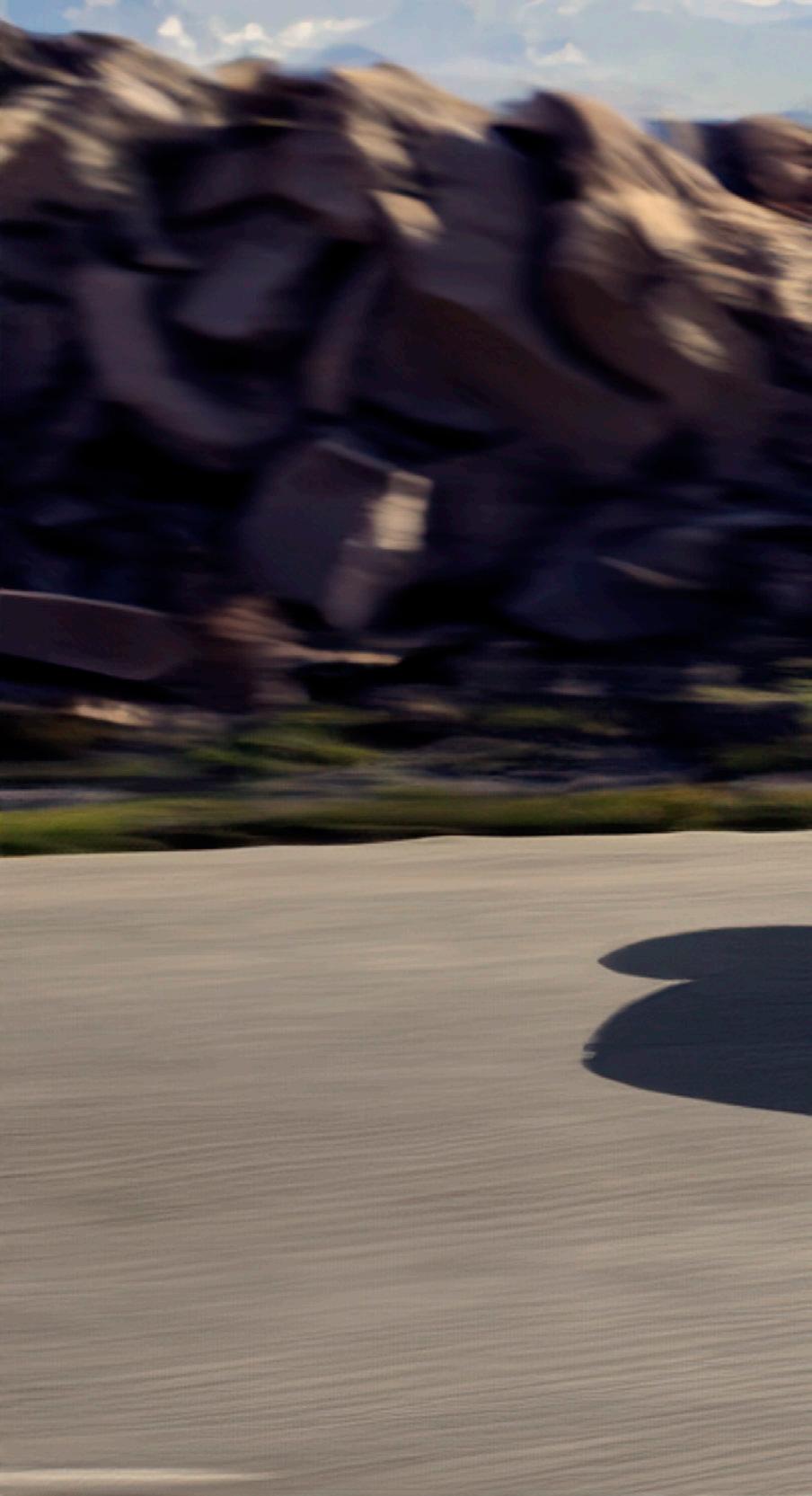
10 SUSTAINABILITY REVIEW 2023
Purchasing criteria. We also deploy our Due Diligence Program to ensure responsible raw materials procurement. Direct partnership with Terrafame allows us to build and improve the sustainability and transparency of the electric vehicle battery supply chain", says Mr. Gouet.
“Direct partnership with Terrafame is allowing Renault Group to build and improve the sustainability and transparency of the EV battery supply chain.”
"The partnership is also a new step forward in building the value chain of sustainable batteries in Europe, as well as part of the strategic plan of Renault Group to propose competitive, sustainable, and "made in Europe" electric vehicles", Mr. Gouet says.
In short:
Jérôme Gouet E-Powertrain and Battery Global Purchasing Director Renault Group

• Terrafame is supporting the automotive industry’s ambition to decarbonize the EV manufacturing value chain with its low-carbon, traceable battery chemicals.
• In 2022, Terrafame signed a multi-year agreement with Renault Group to supply them with nickel sulphate for electric vehicle (EV) batteries.
• Terrafame’s integrated production process supports Renault’s sustainability targets both on transparency and lowering carbon intensity.

1 The carbon footprint of Terrafame’s battery chemicals is 60% lower than that of battery chemicals produced with conventional production technologies.
2 Compared with the battery of ZOE in 2019.
11 SUSTAINABILITY REVIEW 2023
Using participative leadership for better safety culture
At Terrafame, sustainability is promoted at many different operational levels. In recent years, the company has invested significantly in developing occupational safety and its management and operating culture. During 2022, management culture was harmonised by introducing and training top and middle management on a set of management prin ciples developed through collaborative methods. The new model is based on coaching leadership and aims to strengthen an inclusive and participative culture.
"At the heart of coaching is low-threshold discussion and learning together. Instead of giving top-down, ready-made answers, we see that people themselves hold the keys to the solution when they are given the opportunity to take responsibility and influence deci sions," says Pekka Lappalainen, Manager of Operational
Excellence at
Terrafame.
The team led by Lappalainen acts as an internal change agent at Terrafame, guiding Terrafame's people towards a learning and inclusive culture. The team has its roots in the ROTI project, which ended in 2022 and developed safety and management culture as well as production reliability by strengthening a learning, participative, and systematic culture of continuous improvement. The benefits of the project were seen to be so significant that a more permanent structure was established.
"Examples of tools that have been seen to be successful include safety meetings, where workers in the field develop preventive solutions to potential or prevented safety situations and where the supervisor's role is to coach and support. In addition to practical tools, it's about a change in mindset," Lappalainen sums up.
Safety, well-being, and reliability go hand in hand
The development work has strengthened solution-oriented thinking at Terrafame, and potential safety issues have been raised more actively than before. Staff surveys also show a shift from a reactive culture towards a culture of proactive and self-directed teams. At the same time, the reliability of production has improved.
"The change in management culture has received positive feedback from staff. Good management is one of the key factors in well-being at work and therefore needs to be constantly reviewed," says Heini Hämäläinen, Terrafame's Chief People Officer.
The safety culture has been developed by reforming the onboarding process and increasing task-specific onboarding. During the past year, 75% of all Terrafame staff completed a safety training course, which includes training in typical safety situations. All staff will have undergone training by spring 2023. However, safety culture is maintained above all in day-to-day operations.
"At Terrafame, safety is everyone's responsibility. It is therefore important that job roles are clear and that everyone feels they have adequate support. Safety culture is
"Surveys conducted among staff show a significant shift from a reactive culture towards a proactive and selfdirected culture of teams."

12 SUSTAINABILITY REVIEW 2023
developed together when every member's participation is valued in the work community. A good safety culture is a sign of successful management," says Hämäläinen.
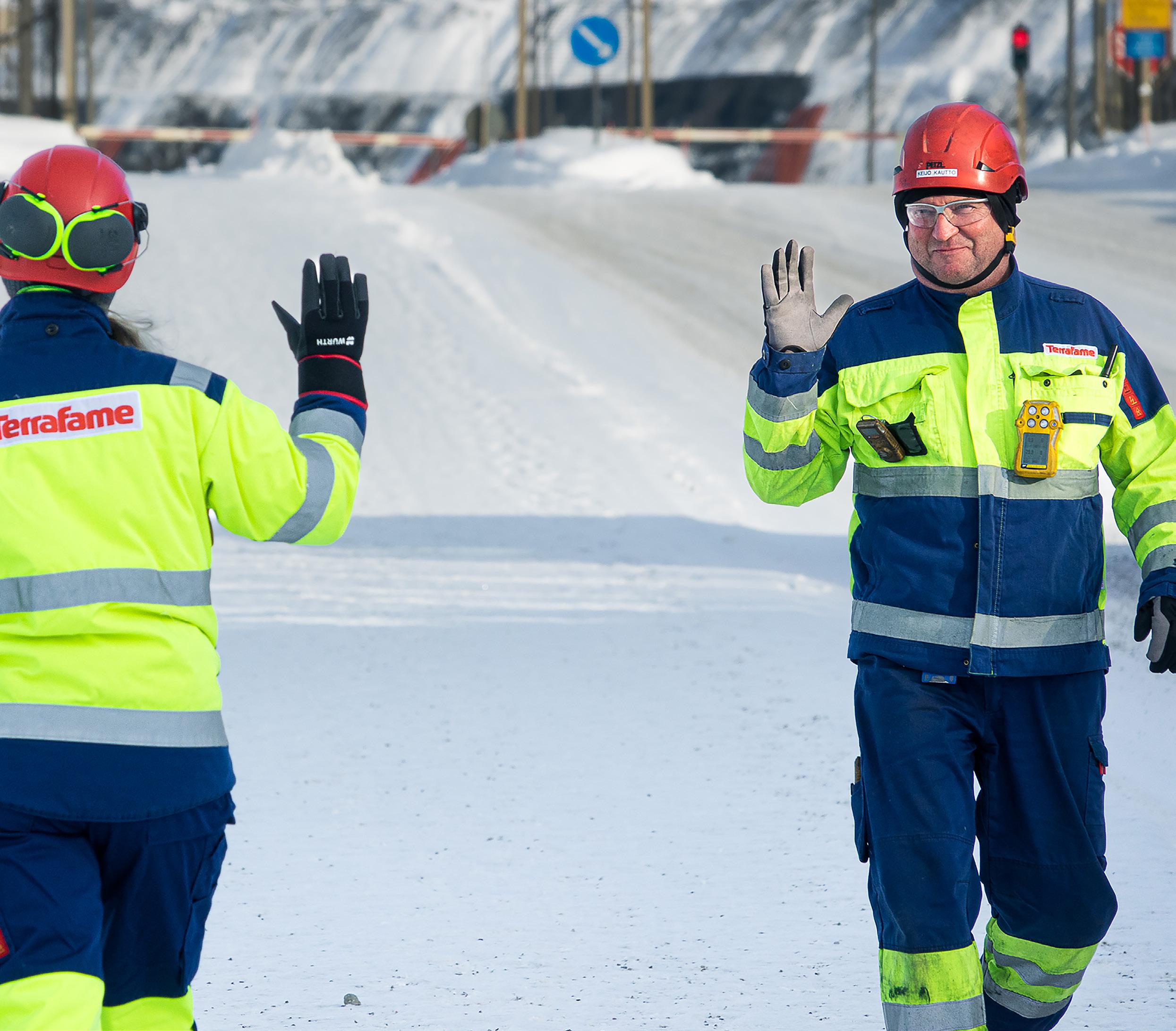
In short:
• Terrafame is continuously improving its safety and management culture. This work is guided by the Operational Excellence team.
• The focus of developing the safety and management culture has been to embed an inclusive and participative culture into Terrafame's operating practices.
• With the help of new tools and operating models, Terrafame is already seeing signs of more active awareness of safety situations, improved well-being at work, and improved operational reliability.
13 SUSTAINABILITY REVIEW 2023
Terrafame is ready as corporate responsibility obligations grow
Companies in the EU will take a leap towards more comprehensive sustainability reporting when the Corporate Sustainability Reporting Directive (CSRD) comes into force at the beginning of 2024. It will extend mandatory sustainability reporting to approximately 50,000 companies in Europe and will extend the scope of sustainability reporting to cover the entire corporate value chain. The Directive will also oblige companies to report what proportion of their business supports EU environmental objectives based on the EU's taxonomy for sustainable activities (EU Taxonomy).
For Terrafame, the regulatory changes will create new opportunities to communicate its sustainability performance and impacts in a transparent and comparable way. Terrafame produces nickel sulphate, essential for the electrification of road transport, with a proven low carbon footprint and fully transparent production chain from extraction to battery chemicals. Sustainability is at the heart of the company's business and Terrafame is therefore well placed to meet the new obligations.
Corporate responsibility extends to the whole value chain
The new Corporate Sustainability Reporting Directive requires companies covered by it to report on their activities based on the principle of double materiality. This means that companies will have to define their relevant sustainability themes, taking into account both the impact of their operations on sustainability factors, such as climate change, and the impact of sustainability factors on their business. The double materiality approach thus serves as a tool for analysing the impacts, risks, and opportunities for the business. Terrafame will develop its materiality assessment in line with CSRD requirements.
The CSRD requirements bring with it other significant changes, notably extending corporate responsibility to the entire value chain. Terrafame's short production chain from its own mine to the battery chemicals plant significantly increases the traceability of the battery value chain. The Directive will require companies to develop a due diligence process for sustainability that extends to the entire value chain, including subcontractors. Terrafame will begin development work to meet these requirements and develop the responsibilities and obligations of subcontractors going forward. Above all, the new reporting model will support Terrafame's data-driven sustainability management; it will provide metrics and standards against which sustainability will be continuously improved.

14 SUSTAINABILITY REVIEW 2023
"The new reporting model supports Terrafame's knowledgebased sustainability management; it provides metrics and standards against which sustainability is continuously developed and improved."
Terrafame is expecting a set of criteria for battery chemicals in the EU Taxonomy – preparatory measures are being initiated
The EU's taxonomy for sustainable activities, or the EU Taxonomy, establishes technical screening criteria for sustainable activities in the context of the green transition. In addition, companies will have to align their activities with the requirements of minimum social safeguards and the Do No Significant Harm (DNSH) principle. Currently, the classification system defines a set of criteria for the sectors considered most critical to climate change.
Terrafame expects the EU Taxonomy to be extended to cover technical criteria for battery chemicals and is preparing to report on the sustainability of its business under the Taxonomy when regulation allows.
Alongside the new reporting obligations, Terrafame has been involved in the mining industry's own TSM (Towards Sustainable Mining) standard since 2017. The mining sector in Finland has been at the forefront of developing sustainability self-assessment in collaboration with industry and key stakeholders. Terrafame sees a sustainability standard designed for the Finnish operating environment as supporting the evolving EU regulation by bringing a local perspective to sustainability. Together, these form a package that will develop Finnish mining into a forerunner in the sector.
In short:
• The Corporate Sustainability Reporting Directive, which will enter into force in 2024, will extend sustainability to include the impacts of a company's activities throughout the value chain and extend reporting obligations to a larger number of companies.
• The Directive will also oblige companies to report on the share of their business that support EU environmental objectives under the EU's taxonomy for sustainable activities. The EU Taxonomy sets out technical criteria for sustainable activities in the context of the EU's green transition.
• Terrafame produces nickel sulphate, essential for the electrification of road transport, with a proven low carbon footprint and a fully transparent production chain from the mine to battery chemical production. Sustainability is at the heart of the company's business and Terrafame is therefore well positioned to meet the new obligations.
• Terrafame expects that the Commission's taxonomy criteria will be extended to battery chemicals and is preparing to report under the EU Taxonomy when the criteria are published.
• Terrafame will continue its commitment to the industry's own TSM standard and its selfassessment to strengthen a responsible European battery value chain.
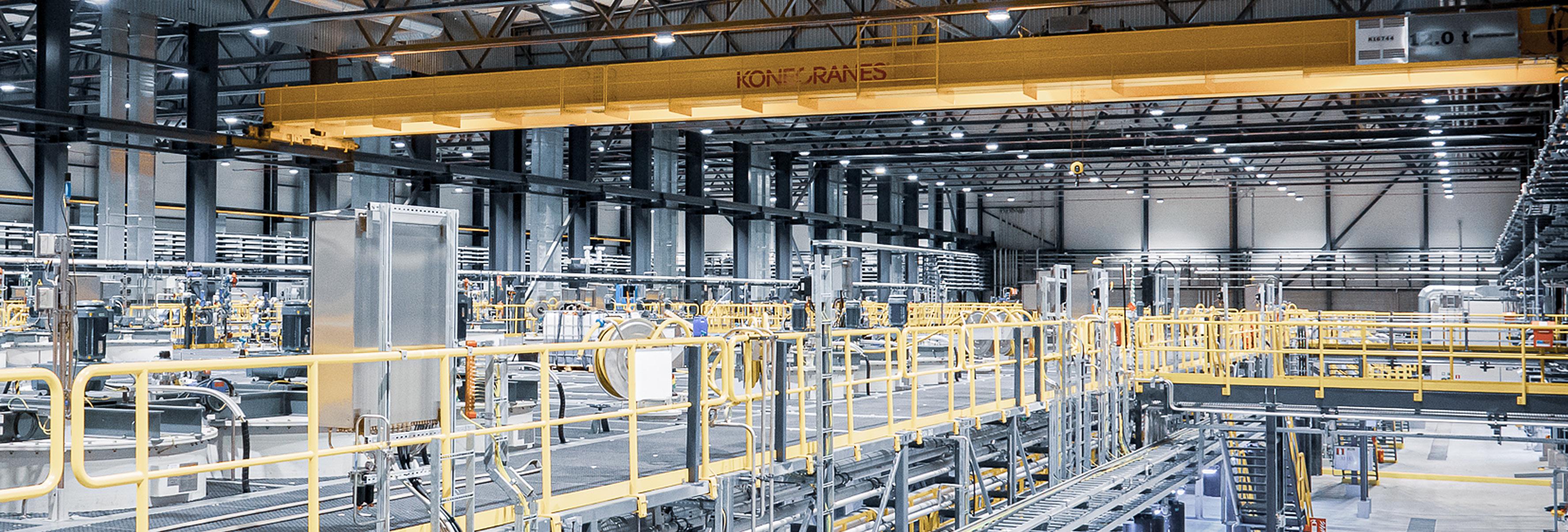
15 SUSTAINABILITY REVIEW 2023
Sustainability programme
Terrafame’s operations are founded on sustainability and continuous improvement. Over the past year, we have updated the sustainability programme first developed in 2020, and Terrafame’s board of directors has approved the sustainability programme. The following section outlines the progress we have made in the main areas of the programme, as well as the most important sustainability measures of 2022.

Terrafame has a comprehensive approach to sustainability incorporating the environment, social responsibility, and good governance. The themes of our sustainability programme are linked to the UN Sustainable Development Goals as far as applicable. We are also committed to the UN Global Compact initiative, which provides an internationally approved framework for demonstrating sustainability. The initiative’s ten principles are based on global human rights, labour, environment, and anti-corruption.
We recognize that there is still room for improvement in our operations, but we are committed to the model of continuous improvement. This commitment is supported by our ambitious and concrete targets, such as our goal to make our production carbon neutral by 2039.
Terrafame’s sustainability programme advances the following UN SDGs: 4, 5, 6, 7, 8, 9, 10, 12, 13, 16 and 17
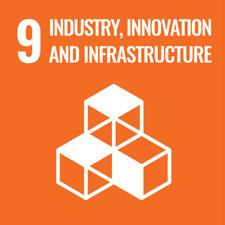
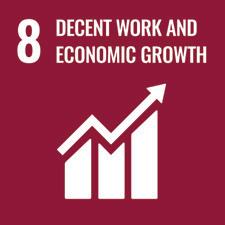
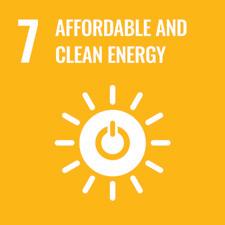
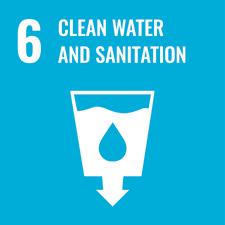
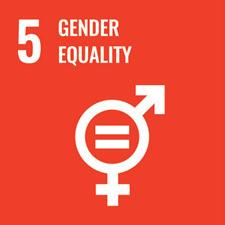

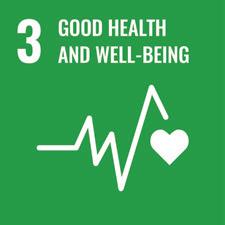
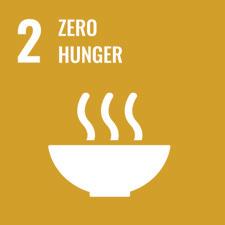
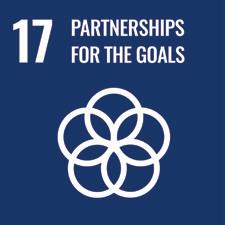

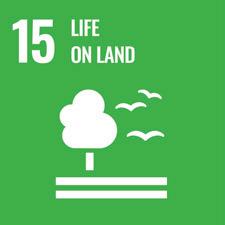
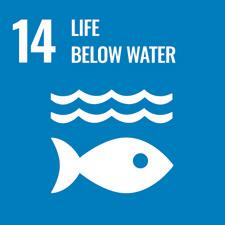

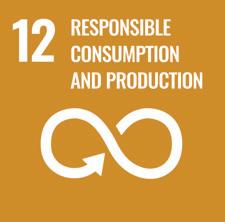
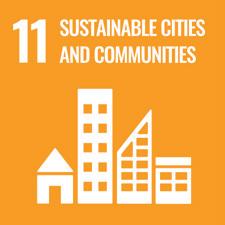
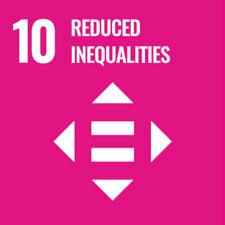
 THE FOUNDATION OF OUR SUSTAINABILITY PROGRAMME
THE FOUNDATION OF OUR SUSTAINABILITY PROGRAMME
The goals of the sustainability programme
∞ We are combatting climate change together with our EV-producing clients.
∞ Our production will be carbon neutral by 2039.
∞ We utilize the side streams from production efficiently.
∞ We minimize our emissions and impacts on waters and lakes.

∞ Terrafame is a safe place to work for both our own and our partners' personnel.
∞ We support and respect human rights and labour rights in our own operations. We require the same from our business partners.
∞ We are continuously developing our personnel’s skills and possibilities to succeed.
∞ We engage in active dialogue with our stakeholders.
∞ Terrafame’s operations are transparent.
∞ We ensure the compliance of our operations.
∞ Terrafame has a strong culture of doing the right things.
∞ Operations are based on continuous improvement and decisions are made based on facts.
Policies and operating principles guiding our sustainability work
UN Sustainable Development Goals

Code of Conduct
Corporate Governance Code 2020 (Securities Market Association)
Towards Sustainable Mining (TSM) Standard of the Finnish Network for Sustainable Mining
OECD Guidelines for Multinational Enterprises
UN Global Compact
Company policies
ILO Declaration on Fundamental Principles and Rights at Work
UN Guiding Principles on Business and Human Rights
OECD Due Diligence Guidance for Responsible Business Conduct
17 SUSTAINABILITY REVIEW 2023
ENVIRONMENTAL
RESPONSIBILITY SOCIAL RESPONSIBILITY GOOD GOVERNANCE
Environmental responsibility
Terrafame’s sustainably produced battery chemicals are an important part of the transportation sector’s wider green transition. For its own part, Terrafame can strengthen the European supply chain for sustainable battery chemicals. Terrafame’s production also has an impact on the local environment, and it is important for the company to also minimize these impacts. Equally important is the efficient circulation of the waste and side streams produced through our operations.
GOAL UPDATE 5/2023
We are combatting climate change together with our EVproducing clients.
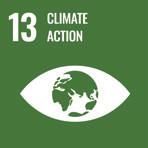
TARGET 2024
The battery chemicals plant’s annual nickel sulphate production is sufficient for around 1 million electric vehicles, and its annual cobalt sulphate production for around 300,000 electric vehicles.
The battery chemicals plant ramp-up was continued in 2022, and the plant’s share of Terrafame's total turnover rose to 35%.
In 2022, Terrafame positioned itself as an integral part of the electric vehicle value chain, in line with its objectives. In December 2022, Terrafame signed a multi-year contract with the Renault Group to supply nickel sulphate for the manufacture of batteries for the Renault Group's electric cars. In January 2023, Terrafame also signed a contract with Stellantis for the supply of nickel sulphate. In February 2023, the supply of nickel sulphate also started with Umicore.
The exploitation of the Kolmisoppi ore and the expansion of the mining district will enable Terrafame to operate for up to 50-60 years.
The EIA procedure for Kolmisoppi was completed in early 2022 and the environmental permit application was submitted in summer 2022. The permitting authority decided that the Kolmisoppi application could not be processed in its entirety for permitting reasons, so Terrafame will proceed in two stages. The first stage of the permit application will be submitted during 2023.
Our production will be carbon neutral by 2039.
Terrafame has recognised and scheduled concrete actions to achieve carbon neutral production in 2039.
Analyses published in 2020 by Skarn Associates and CRU show that the carbon footprint of the nickel processed by Terrafame through the bioleaching process is the lowest of any nickel producer in the world. Furthermore, according to the 2020 Life Cycle Assessment (LCA) by Sphera Solutions GmbH, the carbon footprint of Terrafame's nickel sulphate is approximately 60% lower compared to average production methods.
Terrafame is currently building a carbon neutrality roadmap and has already implemented a number of measures to reduce carbon emissions and improve energy efficiency. At the heart of this are measures aimed at phasing out fossil fuels.
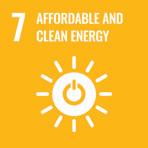
In 2022, Terrafame has refined its own company-level carbon footprint calculation to include emissions from the manufacture of chemicals used in processes and the transport of products as part of the Scope 3 emissions calculation. Emission factors for chemicals by supplier were not available in previous years. The figures for 2021 are also presented in this report in the same way, calculated with a wider Scope 3 calculation, and therefore differ from the figures reported in 2021. The recalculation was done to make the 2021 and 2022 figures comparable.
Improving the calculation will help the company to further identify its emission sources and identify ways to reduce the overall carbon footprint of its operations.
18 SUSTAINABILITY REVIEW 2023
We utilize the side streams from production efficiently.
Process-based side streams are recycled as efficiently as possible to reduce the generation of waste and the need for its piling. At the same time, the metals contained in the side streams are reused in production.
The purification extraction process in the battery chemicals plant removes impurities from the solution that are not part of the final product, such as copper and zinc. The reject solution is returned to the bioleaching cycle and the metals contained in the rejects are recovered at the metal plant as saleable products.
Of the process side streams, the metal recovery plant's preneutralisation sludge is also recycled and placed in the secondary leaching area, where the metals contained in it are dissolved and recycled.
The ammonium sulphate product from the battery chemicals plant process is sold to the fertiliser industry.
Terrafame has an agreement with a partner for the recovery of plastic waste. In 2022, 4 644 tonnes of plastic waste were delivered to the partner and plastic hoses made from recycled material accounted for approximately 70.2% of the annual demand.
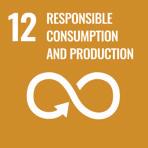
We minimize our emissions and impacts on waters and lakes.

100% of the sulphate resulting from the process that ends up in water treatment will be recycled back into the leach cycle. The remediation of the local lakes and the old sludge from water treatment has begun.
The two-line run model introduced at the central treatment plant at the end of 2020 will allow for more efficient separation of the collection waters. As in the previous year, in 2022 100% of the sulphate was recycled from the process back into the solution circuit. Only low-sulphate collection waters are treated and discharged out of the area.
The most important lakes for recreational use are in good condition. In 2021, the water in the largest deep-water area in Lake Kivijärvi was mixed for the first time in ten years. In 2022, the monitoring results indicated a partial realisation of the autumn circulation also for the under lake of the second deep area, which until now has remained stratified. The status of Lake Kivijärvi is therefore recovering naturally and there is no need for artificial restoration measures. The condition of the local lakes is further described in Terrafame’s Water Management Review (available in Finnish at www.terrafame.fi).
For the nearby lakes, the remediation of Lake Salminen started in 2022 and will continue in 2023. In 2022, Terrafame also submitted an application for an environmental permit to the Regional State Administrative Agency of Northern Finland for the remediation and disposal of old water treatment sediments.
19 SUSTAINABILITY REVIEW 2023
GOAL UPDATE 5/2023
2024
TARGET
Social responsibility
The company’s personnel and human rights policies are key elements of its social responsibility, and everyone in the workplace community is committed to socially responsible operations.
GOAL UPDATE 5/2023
Terrafame is a safe place to work for both our own and our partners' personnel.
TARGET 2024
The Lost Time Injury Frequency (LTIFR1) for Terrafame’s own employees and its partners is below 2.5.
In 2022, the accident frequency rate for Terrafame employees was 4.3 (5.5 in 2021). The accident frequency rate including employees of partners was 6.4 (8.9 in 2021).
The continuous improvement programme launched at the end of 2020 has started to show results in the safety work and as the figures above show, Terrafame's employee accidents have decreased significantly between 2021 and 2022. There has also been a clear decrease in the frequency of accidents among partners.
We support and respect human rights and labour rights in our own operations. We require the same from our business partners.
Terrafame has an effective continuous due diligence process for sustainable operations, including human rights issues, that covers the entire supply chain where applicable.
The company will continue to integrate the UN Global Compact principles more closely into its management systems.
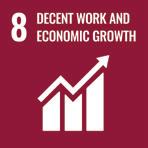

In May 2021, Terrafame conducted a human rights survey among its stakeholders, which resulted in a human rights policy that was approved by the company's Board of Directors in December 2021. In spring 2022, training on the human rights policy was organised for management, supervisors, shop stewards and personnel as part of a broader sustainability training.
In September 2022, human rights indicators were introduced to support the monitoring of the implementation of the Human Rights Policy principles. The human rights indicators are reported quarterly as part of the company's management reporting.
Terrafame audits its partner companies operating in the industrial site on a regular basis through an audit process common to all partner companies. In 2021, the coverage of human rights issues in partner audits was expanded.
Partner meetings held in 2021 covered the company's Code of Conduct, the principles of the UN Global Compact initiative, and the zero tolerance policy introduced in 2020 as part of the company's enhanced safety work.
The company has not been made aware of any human rights violations in 2022, and no fines or sanctions related to social or economic regulations were imposed on the company.
In March 2022, following Russia's invasion of Ukraine, the company decided to shift all sourcing from Russia to alternative sources.
The strengthening of our diversity culture has continued in 2022. We created a new Diversity, Equality and Inclusion Policy, which was approved by the Board of Directors in March 2023. All employees will be trained on the policy during the spring and summer of 2023. Diversity has also been emphasised in workplace communication. The proportion of female staff increased slightly, sitting at 12.5% on 31 December 2022. Our commitment to non-discrimination and non-discriminatory treatment is well known to our staff and they actively report any anomalies they detect: in 2022, we received 12 reports. All reports were investigated and 6 cases of inappropriate treatment were identified and addressed through guidance and sanctions.
20 SUSTAINABILITY
2023
REVIEW
GOAL UPDATE 5/2023
We are continuously developing our personnel’s skills and possibilities to succeed.
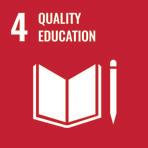
At least 95% of Terrafame’s employees have a degree corresponding to their job requirements.
Process technology education has been developed for the Kainuu region with support from Terrafame.
Terrafame uses apprenticeships both to ensure the availability of skilled personnel and to develop the professional skills of its staff.
In 2019-2022, Terrafame organised a two-year apprenticeship training leading to a vocational qualification in the process industry in cooperation with Kainuu Vocational College and Oulu Vocational College, which was carried out in three groups. The last group, 23 students, graduated in April 2022. A total of 67 people graduated from the apprenticeship, the majority of whom were employed by Terrafame after completing their studies.
During 2022, 135 Terrafame employees developed their skills by completing part or all of their qualifications as apprentices while working. The most common qualifications were a basic, vocational, or specialised vocational qualification in the process industry, a basic and vocational qualification in electrical and automation engineering, and a specialised vocational qualification in production management. In addition, vocational qualifications in vehicle mechanics and mechanical engineering and maintenance were studied.
Terrafame is involved in the Process Academy project, where all levels of education are working together to develop process engineering education in Kainuu.
We engage in active dialogue with our stakeholders.
Terrafame has an effective interactive process in place with stakeholder representatives that provides the company with information about stakeholders’ expectations, as well as providing stakeholders with information about the company’s operations.
Terrafame has continued its active dialogue with its stakeholders. The most important stakeholders have been identified as owners, customers, financiers, employees, and partner companies, as well as neighbours in the immediate area.
The Board of Directors, in which the main owners are represented, meets once a month. The company's activities and financial situation are discussed with its main financial partners on a regular basis, at least quarterly in conjunction with the reporting of financial results.
Terrafame discusses with both existing and potential new customers. Quality assurance is developed on the basis of customer feedback. Terrafame also discusses with customers on their preferred sustainability systems to demonstrate the sustainability of Terrafame's activities.
Terrafame maintains an active dialogue with its employees, so that they have the opportunity to participate and contribute. The interaction between management and employee representatives is active and development-oriented. In 2022, 14 interaction meetings were held. Management structures support dialogue. Senior management is in contact with staff through weekly safety briefings and quarterly staff briefings. The tools for workplace communication are management structures, staff briefings, the staff magazine, intranet, Teams, and electronic information boards.
In 2022, one partner meeting was held for the partners in the industrial site, with representatives from over 100 partner companies present.
Terrafame set up a separate local cooperation group in early 2022, which met for the second time in spring 2023. The group includes a wide range of expertise from the areas affected by the company's activities.
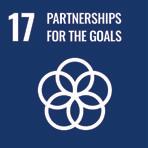
21 SUSTAINABILITY REVIEW 2023
TARGET 2024
Good governance
Transparent operations and the commitment of all business partners to the model of continuous improvement are the foundation of Terrafame’s sustainability. The company’s operating principles in terms of quality, safety, and the environment are specified in its separate, regularly updated quality, personnel, and sustainable development policies. Our goal is that by 2024, Terrafame will prove the sustainability of its business operations through systems to which our customers are also committed. Corporate responsibility will also be demonstrated through international systems based on the ISO 26001 standard.
GOAL UPDATE 5/2023
Terrafame’s operations are transparent.
TARGET 2024
Terrafame proves the sustainability of its business operations through systems that are based on the ISO 26001 standard and to which its customers are also committed.
Level A has been achieved in all aspects covered by the Finnish TSM Standard.
Terrafame is committed to the Finnish Towards Sustainable Mining standard. According to the external verification carried out in late 2021, the verified results were in line with the company's self-assessment. The 2023 self-assessment was carried out in April and the internal audit in May. The company has 3/8 assessment tools that have not yet reached level A.
In 2023, participation in the chemical industry's Responsible Care accountability framework will be explored, including reporting under the UN Global Compact's renewed COP Report.
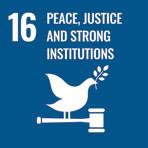

In 2023, the company will start preparing for reporting under the EU Corporate Sustainability Reporting Directive (CSRD). The development work will start with a forward-looking materiality assessment, which will review Terrafame's material sustainability issues and lay the groundwork for updating the sustainability programme from 2024 onwards.
We ensure the compliance of our operations.
Terrafame has systematic processes in place to identify business partners and the ethical risks associated with them, even before establishing a partnership.
In April 2021, the company launched a channel where people working on the industrial site can report possible wrongdoing (whistleblower), also anonymously. In 2022, the Whistleblower channel was extended to the general public and can be used by anyone via the company's website. During 2022, four whistleblower reports were made.
During 2022, a systematic compliance process for selecting, identifying, and monitoring business partners was developed. Work will continue in 2023 with the development of a value chain-wide due diligence process and preparation for the EU Corporate Sustainability Due Diligence Directive (CSDDD).
22
REVIEW 2023
SUSTAINABILITY
GOAL UPDATE 5/2023
Terrafame has a strong culture of doing the right things.
The company’s operating culture is based on continuous improvement, inclusion, personal responsibility, and learning.
The partner companies operating within the industrial site follow common rules, and operations are developed in cooperation between Terrafame and its partners.
In 2022, Terrafame continued a project to develop its safety and management culture and improve the reliability of production. The project strengthened a learning, participative and systematic culture of continuous improvement. At the beginning of 2023, a new Operational Excellence function was launched to ensure that development work continues in the future.
Terrafame has more than 100 supervisors. The management culture and supervisors’ skills are continuously developed. For example, in 2022, a set of leadership principles, created in collaboration between staff and management, was introduced and used as a basis for training the management team and middle management. The leadership principles ensure a high quality and consistent management approach. During the year, the company started regular training sessions to support the work of close supervisors, with a total of 17 sessions. The training will continue in 2023 and the performance management process has also been revised. The development of the culture is particularly visible in work safety. In 2022, the accident frequency rate in the industrial area decreased compared to the previous year.
Workplace communication was developed in a more inclusive way through new channels and concepts.
In 2022, a total of 3 (8 in 2021) supplier audits were carried out for partner companies operating in the industrial site. A further 18 supplier audits were carried out during the year. In 2021, the industrial site had around 150 long-term partner companies.
Terrafame's Code of Conduct includes an absolute prohibition on bribery and corruption. In 2022, the company was not made aware of any cases of financial misconduct, corruption, or bribery.
Operations are based on continuous improvement and decisions are made based on facts.
Sustainability has been integrated more closely into Terrafame’s business planning. Its management culture and practices are further developed and made more systematic in the spirit of continuous improvement. The company has certified management systems in place.
In 2022, an external audit of the ISO 9001, ISO 45001 and ISO 14001 management systems was carried out.
At the end of 2022, the construction of the ISO 27001 information security management system was started. In 2023, preparations for the construction of an energy efficiency management system were launched.
The company's updated quality, sustainability and human resources policies were effectively communicated to both staff and key personnel of business partners.


23 SUSTAINABILITY
2023
REVIEW
TARGET 2024
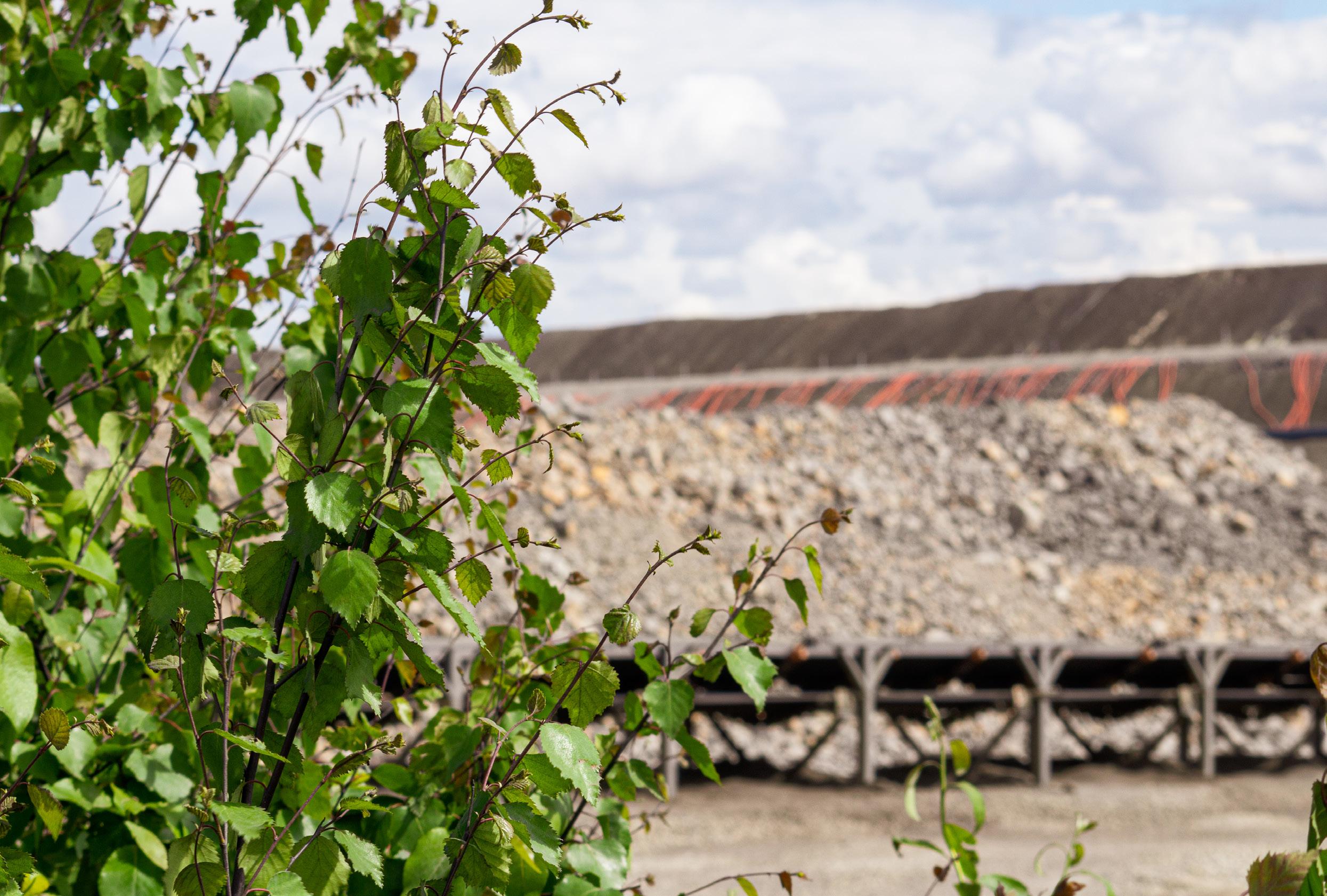
24 SUSTAINABILITY REVIEW 2023 Terrafame
Net sales 2022 584,4 M€ 2021 378,4 M€ EBITDA 2022 (excluding non-recurring items) 152,1 M€ 2021 24,2 M€ Lost Time Injury Frequency (LTIFR1), Terrafame’s own personnel 2022: 4,3 2021 5,5 Lost Time Injury Frequency (LTIFR1), whole industrial site 2022: 6,4 2021 8,9
in numbers
Key sustainability numbers
Main waste fractions utilized in own operations
* (only those in accordance with the Environmental Protection Act)
In March 2023, Terrafame put up a collateral of 350,1 M€ in accordance with the new environmental permit decision (87/2022,PSAVI/2461/2016, issued 20.6.2022).
TABLE CONTINUES ON THE NEXT PAGE
25 SUSTAINABILITY REVIEW 2023
ENVIRONMENT 2021 2022 Environmental investments Environmental operating costs Provisions for environmental restoration Collaterals for environmental restoration* M€ M€ M€ M€ 31,8 31,5 232,0 138,4 18,5 31,5 232,0 155,4 Ore mined Waste rock mined Mt Mt 16,1 24,8 17,9 31,8 Total chemical use Process chemicals c Explosives t'000 t'000 t'000 481,3 477,0 4,3 521,2 516,0 3,6 Total energy use Electricity Fossil fuels (total) Renewable fuels (total) TJ TJ TJ TJ 2 643,7 1 767,1 645,6 231,0 2 823,1 1 934,9 591,1 297,1 Total water use Lake Kolmisoppi Household water Recycled water Total water recycled Mm3 Mm3 Mm3 Mm3 % 3,7 2,7 0,03 1,0 26,3 3,9 3,0 0,04 0,9 22,4 Volume of water
waters Nickel loading Zinc loading Copper loading Manganese loading Sulphate loading Sodium loading Mm3 kg/a kg/a kg/a t/a t/a t/a 8,9 141,3 362,8 15,0 2,3 14 491,7 612 9,4 165,2 356,3 14,3 3,6 12 763 756 Conventional municipal and industrial waste Hazardous waste Waste utilised as materials or energy t t % 3 837 489 88,5 3 342 622 84,8 Process waste Gypsum Waste rock (black shale)
directed to surface
Precipitation
Iron tailing Waste rock (mica schist) t'000 t'000 t'000 % t'000 t'000 t'000 25 326 376,7 24 807 24,3 142,75 050 32 006 70,3 31 800 12 135,7 1 262 3 650
from preneutralization
Carbon dioxide (CO2) emissions**
Direct CO2 emissions (Scope 1)
Indirect CO2 emissions from purchased electricity generation (Scope 2)
Other indirect CO2 emissions (Scope 3)
Process chemicals
Explosives
Outsourced logistics and fuel production
Indirect emissions related to electricity production
LTI = accidents leading to more than one day's absence, does not include accidents during commuting (Lost Time Injury) LTIFR1 = accidents leading to more than one day's absence per million hours worked, does not include accidents during commuting (Lost Time Injury Frequency) TRI = total recordable injuries
TRIFR = number of accidents per million hours worked (Total Recordable Injury Frequency)
** Terrafame’s emissions calculation is based on actual quantities and material-specific emission factors. In 2022, the calculation was extended, in particular for Scope 3 to include the most significant process chemicals and emissions from their manufacture, as well as the transport of products ("others"). Therefore, the emissions were recalculated with the same scope for 2021 in order to make the figures comparable. It was not possible to calculate emissions from waste management for 2021. The Scope 3 calculation includes emissions from manufacture of most significant process chemicals (in terms of volume); fuel- and energy-related activities not included in Scope 1 or Scope 2; upstream transportation of products and business travel. The calculation boundary will be reviewed in the next calculation round.
26 SUSTAINABILITY REVIEW 2023
2021 2022
ENVIRONMENT
Waste
tCO2e tCO2e tCO2e tCO2e tCO2e tCO2e tCO2e tCO2e tCO2e tCO2e 480 228 129 432 82 546 268 250 189 457 2 859 53 813 7 34014 781 497 944 119 502 131 541 246 900 155 233 3 181 64 116 8 037 199,6 16 134 New land used during the year ha 80 34 Operating areas with a closing plan % 100 100 Neighbours' environmental observations pcs 10 6 PERSONNEL 2021 2022 Number of personnel at the end of the year Average age of personnel Permanent employees Female employees Employees from Kainuu Training days Gender pay ratio for the same jobs years % % % days/person 858 41,9 93,6 11,6 79,0 6,1 1:1 763 42,2 96,2 12,5 86,6 4,5 1:1 OCCUPATIONAL SAFETY AND HEALTH 2021 2022 Number of lost-time injuries, LTI Lost-time injury frequency, LTIFR1 Total recordable injuries, TRI Total recordable injury frequency, TRIFR Seriousness of injuries pcs pcs/million hours worked pcs pcs/million hours worked days/lost-time injuries 8 5,5 38 26,1 13 6 4,3 33 23,6 26 Occupational diseases Accidental deaths at work Sickness absences Sickness absences persons persons days/person % 0 0 10,7 4,3 0 0 12,3 4,8
treatment Other
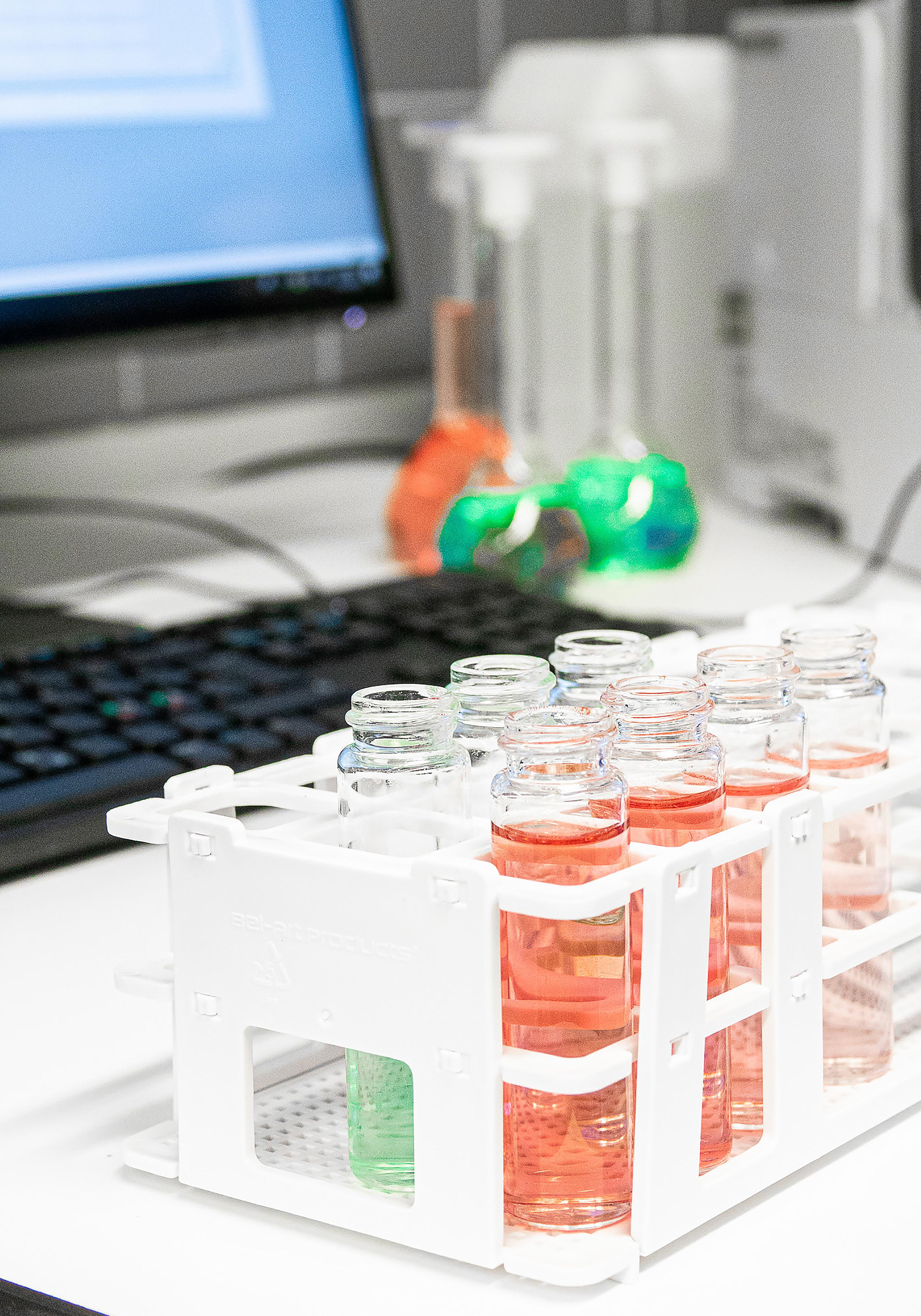
Enhancing low-carbon mobility with responsible battery chemicals Malmitie 66 88120 Tuhkakylä Finland www.terrafame.com








 Veli-Matti Hilla Chief Sustainability Officer Terrafame Ltd.
Veli-Matti Hilla Chief Sustainability Officer Terrafame Ltd.


 Joni Lukkaroinen CEO Terrafame Ltd.
Joni Lukkaroinen CEO Terrafame Ltd.

























 THE FOUNDATION OF OUR SUSTAINABILITY PROGRAMME
THE FOUNDATION OF OUR SUSTAINABILITY PROGRAMME












